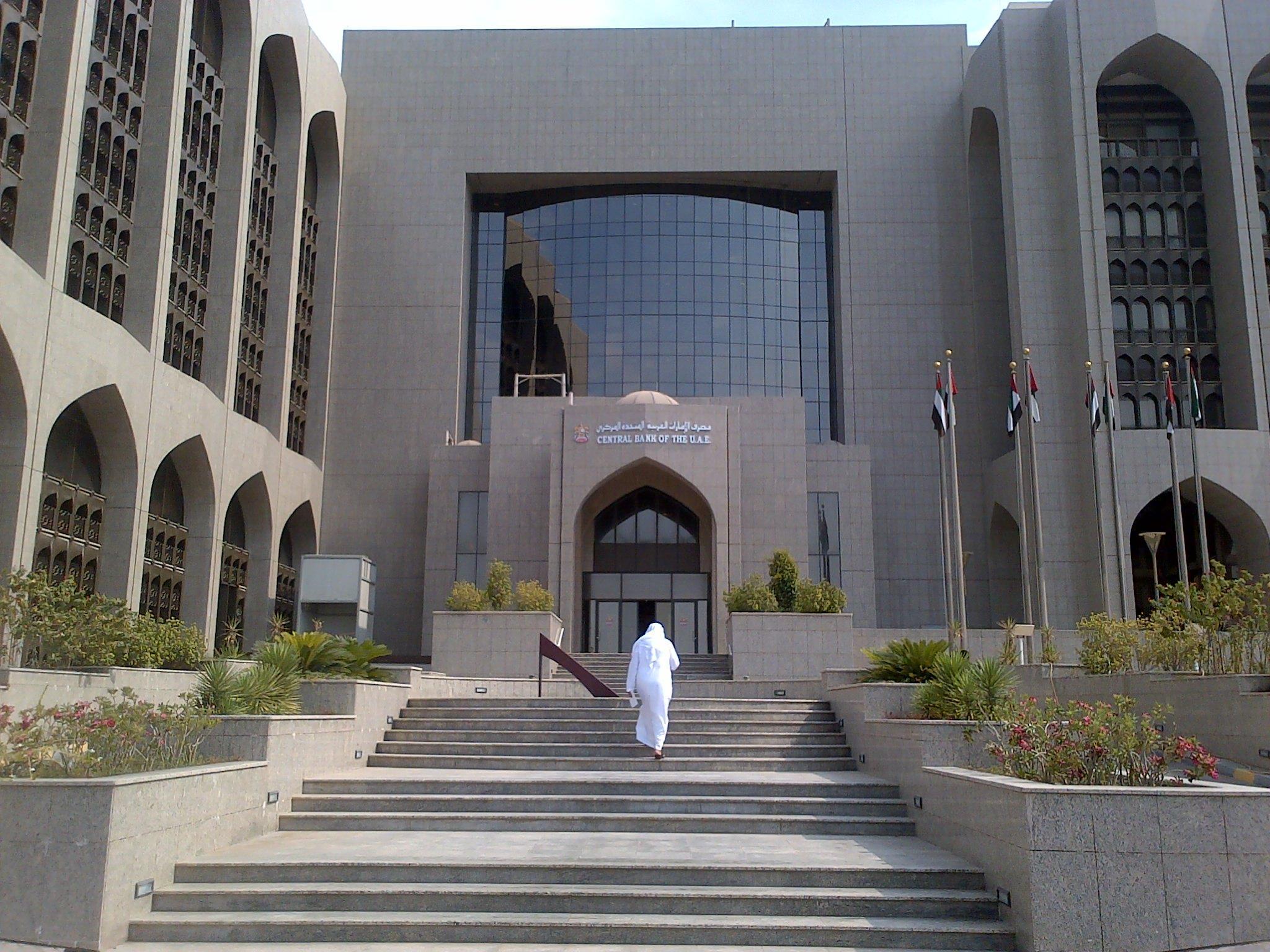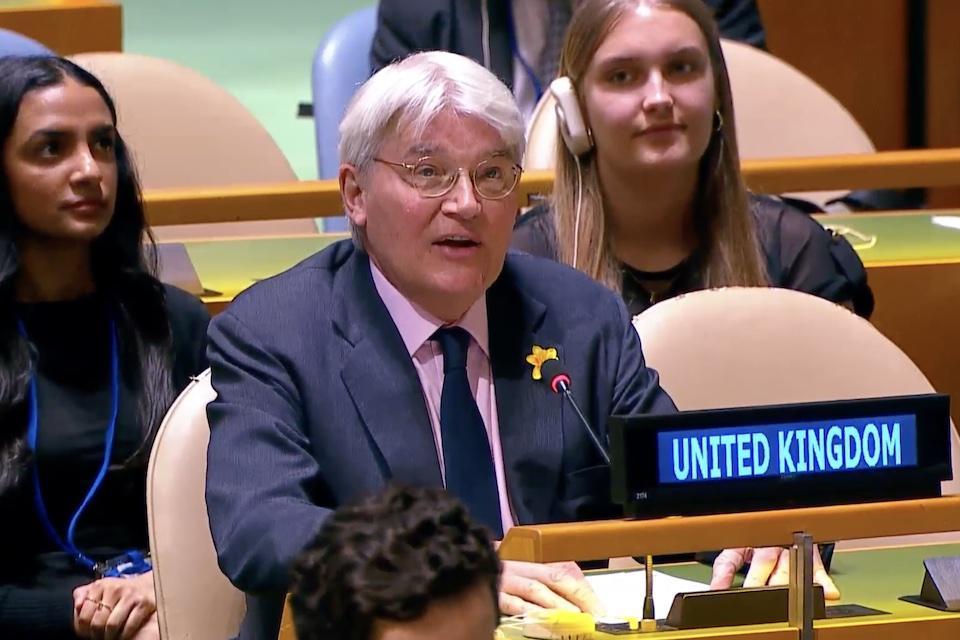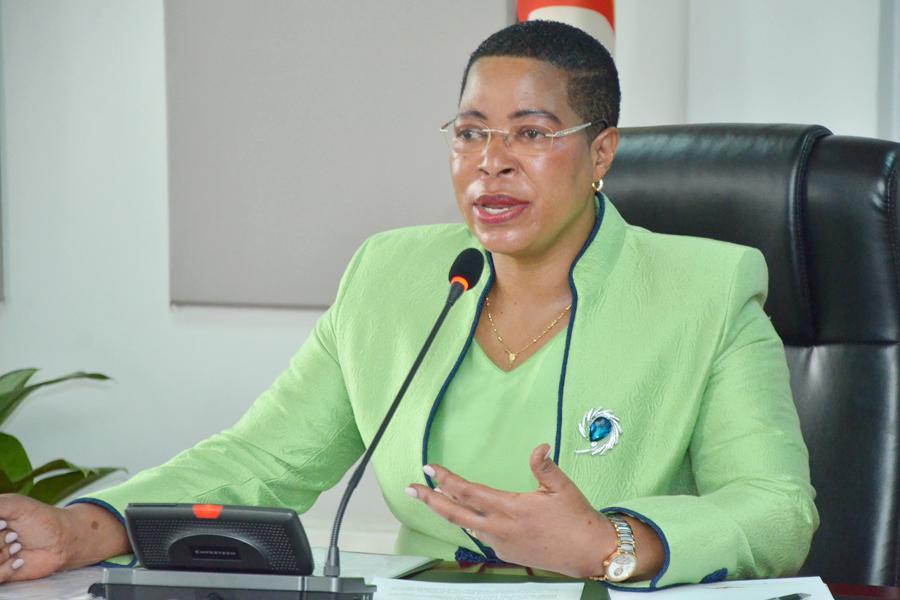By Faridah N Kulumba
Africa-Press – Uganda. The United Arab Emirates (UAE) picked on the sanctions imposed on the speaker of the Ugandan parliament Anita Annet Among and three former ministers over corruption allegations. The UAE government instructed all financial institutions on in the country to halt dealing with Speaker Among and two former ministers Agnes Nandutu and Mary Goretti Kitutu in any transactions. Emirates sanctions followed the UK government’s sanctions announced by the Deputy Foreign Secretary, Andrew Mitchell on the trio for robbing the poor. The two former ministers have been charged with corruption in Uganda’s Anti-Corruption Court for allegedly stealing iron sheets intended for the impoverished northeastern region of Uganda.
UAE sanctions
The Central Bank of UAE this week issued a warning to all financial institutions in the Middle East country to thwart any transactions coming from Among, Nandutu, or Kitutu. The UK’s Global Anti-Corruption sanctions regime ordered sanctions on the Ugandan Speaker and the three former ministers and also ordered their assets in the United Kingdom frozen. The UAE government directed immigration to issue red flags should any of the three travels through the country. The UAE central bank also directed that the properties of the three sanctioned Ugandan politicians, if any, should be frozen until further notice.
Taking action
The UAE’s Central Bank has already communicated the targeted financial sanctions to all licensed financial institutions operating in the Middle East country. However, according to some sources, the Central Bank of UAE only imposes such targeted financial sanctions against individuals or institutions upon a cabinet decision.

Implementation
The bank instructs all licensed financial institutions to fully comply with the obligation to implement all necessary measures without delay. The UAE’s central bank says all licensed financial institutions must screen databases and transactions against the lists of sanctioned persons. When a “confirmed” or a “potential” match is found through the screening process, the institution must immediately, without delay and without prior notice, freeze or suspend all funds or transactions. The institutions are also required to report “confirmed” or “potential” matches and the actions taken within five business days.
UK’s sanctions ground
Deputy Foreign Secretary Andrew Mitchell by explaining why the UK government is concerned about the iron sheets scandal by saying that the trio” taking aid from those who need it most and keeping the proceeds, is corruption at its worst and has no place in society. The UK decided to sanction the three Ugandan politicians as a way of sending a clear message to those who think benefiting at the expense of others is acceptable. Corruption has consequences and whoever participates in it will be held responsible. Britain says the two former Ugandan ministers had stolen thousands of iron sheets from a government-funded housing project aimed at helping vulnerable communities in Karamoja. Speaker Among had benefited from the proceeds of the theft. The three sanctioned lawmakers will be subject to travel bans and asset freezes under the UK’s Global Anti-Corruption sanctions regime. The UK’s Global Anti-Corruption sanctions regime has targeted individuals involved in serious corruption cases across the world, including offenders in Bulgaria, Lebanon, Moldova, Russia, South Africa, South Sudan, and Venezuela. Since its introduction in April 2021, the UK has introduced sanctions on 42 individuals and entities under this regime globally to combat corruption across the world. Under the punitive measures, an asset freeze prevents any UK citizen, or any business in the UK, from dealing with any funds or economic resources which are owned, held or controlled by the designated person and which are held in the UK. It will also prevent funds or economic resources from being provided to or for the benefit of the designated person or entity.

Speaker Among’s protest
Ms Among protested the sanctions, calling it “politically motivated” and a “witch-hunt” against her person for her push to enact the Anti-Homosexuality Act last year. Last year in May, the parliament of Uganda passed a law prescribing life and death sentences for certain acts of homosexuality, a move strongly criticized by some Western countries, including Britain. The Speaker Among presided over the passing of the anti-homosexual bill saying that the Parliament of Uganda heeded the concerns of the citizens and legislated to protect the sanctity of the family, as per Article 31 of the Constitution of the Republic of Uganda. She added that the parliament stood strong to defend the culture, values, and aspirations of Ugandans as per objectives 19 and 24 of the country’s national objectives and directive principles of state policy Among says she’s carrying a cross for 48 million Ugandans because of the Anti-Homosexuality that was passed. Uganda’s Ministry of Foreign Affairs is planning to engage with the British High Commission to find the rationale for actions taken by the British Government in the sanctions.
Sanctions gravity
Sanctions are purposefully put to cause financial difficulties to the target individual. They do not only deny individuals entry into the sanctioning country. As in Among’s case, they often allow for the seizure of any of the sanctioned person’s assets held in the country. They also prevent the sanctioned person from entering into transactions with businesses in the country, including banks.
For More News And Analysis About Uganda Follow Africa-Press






